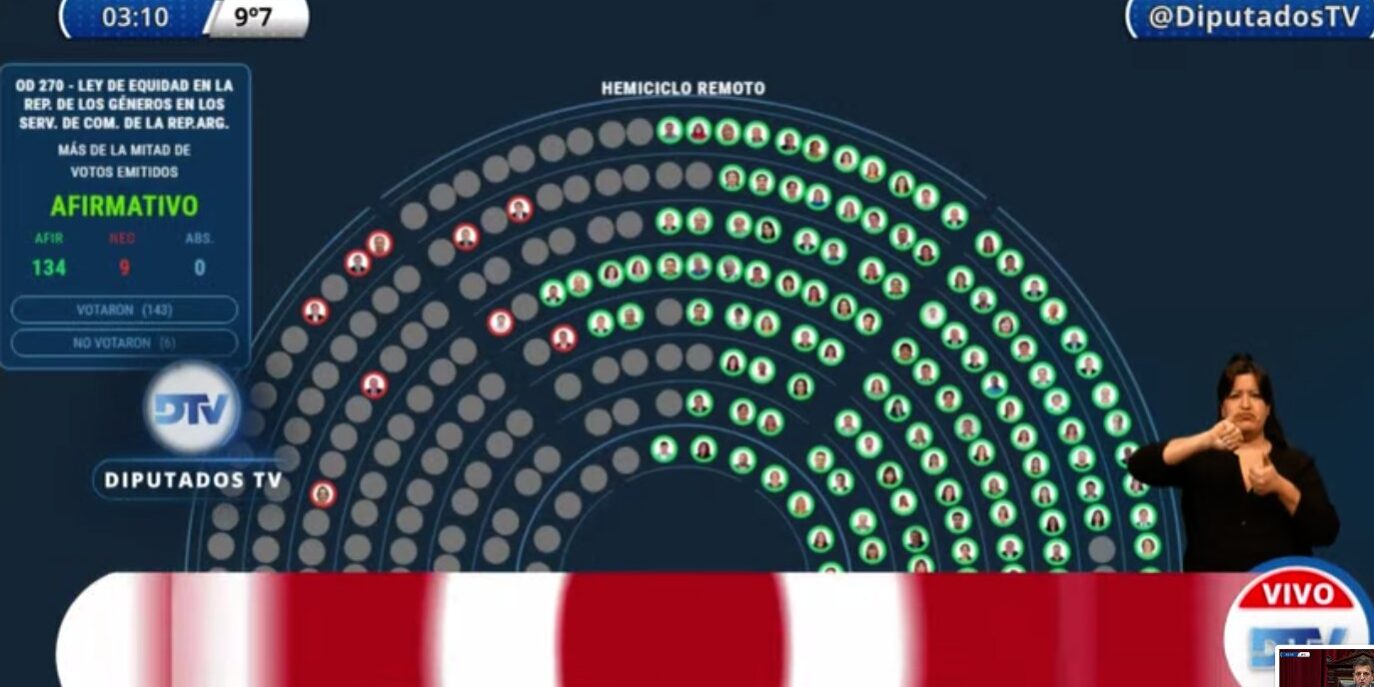
Argentina approves media gender parity law
In a historic day for equal employment opportunities, legislation for parity in gender representation in communication services was approved.
During Pride Month, Argentina once again became a leader for Latin America in terms of progressive legislation. This time, the Chamber of Deputies passed into law the bill to promote gender parity from a sexual diversity perspective in the radio and television broadcasting services of the State, whatever the platform used, and gave half approval to transgender labor quota and inclusion.
The president of the Communications Committee, Pablo Carro, explained that it is not a "quota or parity project," but a "gender equity" project, which he considered to be a "more powerful concept" that will generate "more opportunities," since "more women are needed on the boards of directors of the media."
With 134 deputies in favor, the bill was approved in a vote in which most of the deputies of the opposition Juntos por el Cambio (Together for Change) were absent. With the green light of the chamber, the regulation becomes law, so that not only "there will be more women," but also "a gender perspective" in the media. It is a law that will only apply to public media, and also includes a section that guarantees private media must comply with some requirements.
RELATED CONTENT
¡Es ley la igualdad en la Representación de los Géneros en los Servicios de Comunicación tanto públicos como privados!
Es un logro histórico, impulsado por las mujeres y LGBTI+ trabajadorxs de los medios, para seguir avanzando en pluralidad, igualdad y diversidad. https://t.co/cHoKCMNK8p
— Eli Gomez Alcorta (@EliGAlcorta) June 11, 2021
The new law establishes that "equity in the representation of genders from a sexual diversity perspective must be applied to all permanent, temporary, transitory and/or contracted personnel, whatever the hiring modality, including management and/or decision-making positions," reports Télam.
The debate took place during the early hours of last Friday morning and lasted more than three hours. The president of the Women and Diversities Commission, Mónica Macha, affirmed that "with this bill it is put in the center of the political conversation... that we are not what our genitals force us to be, that we are not the prison of a body." She assured that "this law attacks patriarchy, attacks sexism" and aims to bring transgender people out of "hiding."
Argentina is the first country in the world to have a gender parity law in the representation of genders in national communication and information services.











LEAVE A COMMENT: